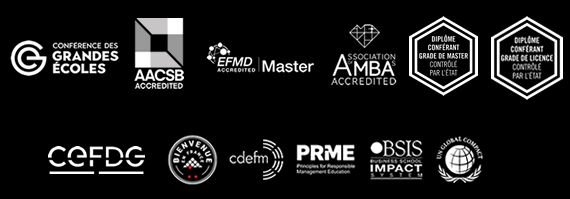Have you heard of the “red sneaker effect”? Many researchers agree that individuals who stand out from the crowd by adopting unconventional outfits, for example, are considered to have a higher “status” than others. This phenomenon is called “impression management,” a key ingredient of social success.
Why should we care about the image we project in society or the brand image of a company? To seduce, convince and obtain everything you want, provided that the impression you want to give is based on objective facts. Prof. Kseniya Navazhylava decodes this question for FNEGE Média.
What is ” impression management “?
The desire to make a favorable impression is universal. One way or another, we all try to control how others see us, and, of course, we prefer that they see us in the best possible light.
This process is known as impression management, and it was discussed by Irving Goffman in his book, The presentation of self in everyday life.
The more important others are for us, the more attention we draw to make an impression on them. A quick test: compare the time you spend while thinking out your Instagram post with the time you spent publishing your Linkedin page.
Recruiters form impressions about candidates based on the way they dress, talk, and even the tone they use when they assert their accomplishments. To study this, researchers have recorded college students passing their job interviews; some different tactics the candidates pursue are: using personal stories conforming to opinions, overcoming obstacles, and providing justifications.
The tactic that proved to be the most persuasive was somehow asserting self-promotion that you possess desirable characteristics such as, for instance, being hard-working or skilled in terms of people interactions or just being an effective leader.
Curiously enough, the more the candidates conformed to this impression management tactics, the more favorably the recruiters have seen them. Similar processes are at work during performance appraisals: similarly to individuals, companies adopt different actions to manage their impressions.
This is known as creating a good corporate image, and in fact, individuals go out of their way to support the companies that adopt sound environmental practices. These businesses also perform better financially, and get the best candidates from the job market.
People seek employment in such companies with an excellent corporate image. At the same time, people can go as far as courting companies that do not invest in their corporate image.
Of course, impression management has some limits; if it’s not backed up by concrete actions, it may seem instrumental and, in the end, harm the reputation of such a company. Impression management is a conscious or subconscious process by which people seek to regulate and control information in social interaction to create the best possible impression.





















